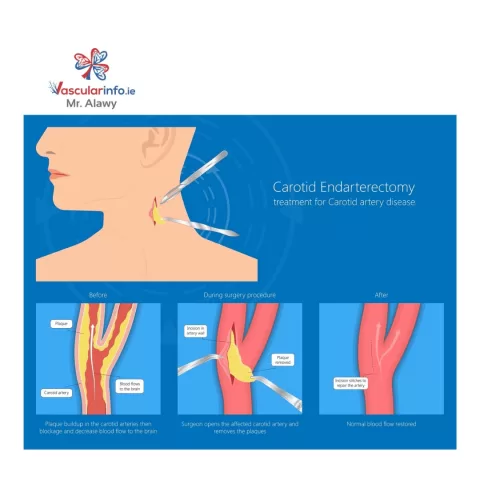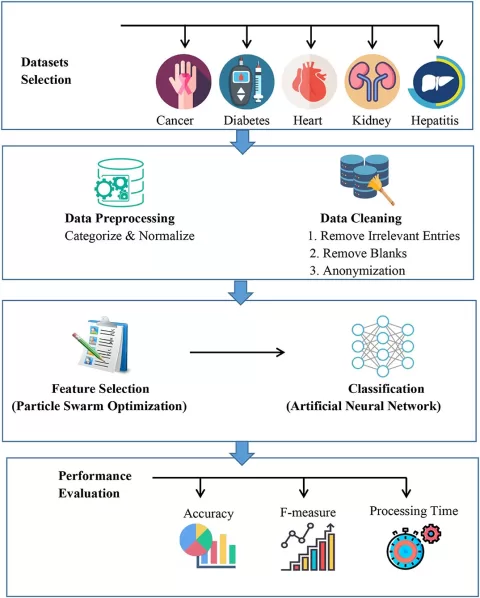Marriage and dementia risk have emerged as a surprising focus of recent research, illuminating the complexities of relationships and their impact on cognitive health. A new study published in the ‘Alzheimer’s & Dementia’ journal highlights that individuals who are married may have a significantly higher risk of developing dementia compared to their unmarried counterparts, including those who are widowed or divorced. While marriage is often associated with various health benefits, such as lower heart disease risk and improved mental well-being, the correlations with dementia risk challenge this conventional wisdom. This shift in understanding sparks crucial discussions about marital quality and its implications for cognitive health as partners often engage in preventive care together. As the data unfolds, it becomes increasingly essential to examine the underlying factors influencing dementia risk in the context of marriage.
The connection between matrimony and the likelihood of cognitive decline has been a topic of burgeoning interest, particularly the startling revelations surrounding marital status and dementia susceptibility. Recent findings suggest that being in a marriage may not provide the protective health benefits commonly assumed, with studies indicating that single, widowed, or divorced individuals may experience a reduced risk of dementia. This inconsistency raises pertinent questions about the quality of relationships and their role in overall brain health. As we delve into the dynamics of partnerships, it becomes clear that the nature of marital interactions could be key in understanding cognitive outcomes as individuals age. Addressing these factors is critical in redefining how we perceive the relationship between emotional ties and mental health.
The Surprising Link Between Marriage and Dementia Risk
Recent research has overturned longstanding assumptions about the protective effects of marriage, particularly in relation to dementia risk. A comprehensive study conducted by the Florida State University College of Medicine revealed that married individuals may face a higher risk of developing dementia compared to their unmarried counterparts. This study analyzed health records of over 24,000 elderly participants and found that divorced, widowed, and never-married individuals had a significantly lower risk of dementia. Such findings challenge the traditional view that marriage inherently promotes better cognitive health.
Potential explanations for these surprising findings suggest that married individuals may experience delayed diagnoses due to their partners noticing symptoms earlier, whereas those who are unmarried might not receive timely medical feedback. The researchers posit that social integration often decreases in married individuals due to the nature of their relationships, thereby undermining the protective factors against dementia. Consequently, it raises the question of whether the emotional and social environments within marriages might play a detrimental role in cognitive health.
Health Benefits of Marriage Beyond Cognitive Health
Despite recent findings regarding dementia risk, marriage is still associated with numerous health benefits. Studies consistently highlight that married individuals experience lower rates of heart disease, decreased depression, and improved survival rates from various illnesses. The social support inherent in marriage often leads to healthier lifestyle choices, like better diet and reduced risk-taking behaviors, which are crucial for overall well-being. Furthermore, the shared responsibilities and emotional support provided by partners can foster an environment conducive to better physical health.
However, the health benefits of marriage appear to hinge significantly on the quality of the relationship. High-quality marriages are linked to enhanced mental health, stronger immune responses, and lower stress levels. Conversely, individuals in unhappy unions may face health challenges comparable to those of their divorced or single peers. Consequently, when examining the effects of marriage on health, it is imperative to consider marital quality as a vital determinant.
The Contradictory Findings in Dementia Research
The realm of dementia research is filled with contradictory findings, as evidenced by a 2017 study from the College of London, which suggested that individuals who are single or widowed carry a higher risk of developing dementia. This perspective resonates with previous studies indicating the cognitive advantages afforded by social engagement, suggesting that those in partnerships benefit from emotional support and shared cognitive resources. The conflicting conclusions across different studies underscore the complex interplay between marital status and cognitive health.
Disparities in findings may stem from differences in study methodologies, participant demographics, and the variables taken into account. For instance, cultural attitudes towards marriage and the availability of social support systems can vary significantly across different populations, possibly influencing the nexus between marital status and cognitive decline. As researchers continue to explore these dynamics, a nuanced understanding of how various forms of social integration impact dementia risk will be essential.
Marital Quality: A Key Consideration in Health Outcomes
As highlighted in the recent study from Florida State University, marital quality may play a pivotal role in determining the health outcomes associated with marriage. High-quality relationships offer substantial emotional and psychological support, which can translate into better health outcomes. In contrast, individuals in low-quality marriages report higher stress levels, which may exacerbate health issues, including cognitive decline. This critical distinction emphasizes that simply being married is not a guaranteed protective factor against health challenges; rather, the nature of the relationship significantly influences overall well-being.
Research has shown that individuals in fulfilling marriages often exhibit resilience to various stressors, leading to healthier lifestyles and improved mental health. High-quality marriages foster open communication, mutual support, and shared coping mechanisms, all of which are protective against various health risks, including dementia. On the other hand, strained relationships can lead to isolation and poorer health habits, negating many of the traditional benefits associated with marriage.
Social Integration and Its Impact on Marital Health
Social integration plays a vital role in the health outcomes of married individuals. Contrary to the traditional belief that marriage inherently fosters social connections, research indicates that married individuals may often experience lower levels of social integration and engagement. This decline could stem from time commitments and emotional exchanges within a marriage that limit opportunities for interactions outside the partnership. As a result, while married individuals may benefit from the companionship of their spouse, they may miss out on the broader social interactions that can provide cognitive stimulation and emotional support.
Unmarried individuals, especially those who are single or widowed, often maintain stronger social ties with friends and family, engaging more frequently in community activities. This active social engagement can serve as a protective factor against cognitive decline, helping to stave off dementia. Therefore, it becomes important to recognize that marital status alone cannot determine cognitive health; the quality and breadth of social interactions play an equally critical role.
Cognitive Health: Insights from Recent Research
Emerging insights into cognitive health highlight the importance of both marital quality and social integration in mitigating dementia risk. Studies increasingly suggest that social engagement, whether through marriage or friendships, can lead to healthier cognitive outcomes. Regular interactions stimulate the brain, potentially slowing cognitive decline and enhancing resilience against dementias such as Alzheimer’s disease. This emphasizes the need for individuals to cultivate social networks regardless of their marital status.
Moreover, ongoing research continues to seek the nuances between the cognitive effects of marriage versus other forms of social support. As investigators delve into factors like marital satisfaction and social engagement, they aim to elucidate the complex relationships that inform cognitive health. The emerging evidence underlines that while marriage can present unique challenges and risks, fostering strong social ties remains essential for enhancing and maintaining cognitive health throughout life.
Preventive Measures: Strategies to Reduce Dementia Risk
Recognizing the interplay between social relationships and dementia risk highlights the importance of preventive strategies tailored to individual circumstances. For both married and unmarried individuals, engaging in regular social activities, maintaining friendships, and participating in community groups can serve as effective means to bolster cognitive health. Implementing lifestyle changes that promote physical activity, mental engagement through puzzles, and dietary adjustments can further contribute to lowering dementia risk.
Additionally, seeking emotional support, whether through professional therapy or social networks, can help address the psychological factors that may intersect with cognitive impairment. Education about the signs of dementia and proactive health management are integral in identifying early symptoms and securing timely interventions. Such preventive measures can empower individuals to take charge of their cognitive health and navigate the complexities that arise from their marital or social status.
The Role of Early Detection in Managing Dementia Risk
The findings related to marriage and dementia underscore the critical need for early detection and intervention. Many individuals may not recognize the signs of early dementia, which can lead to delayed diagnoses. This issue is particularly pronounced among those lacking supportive relationships who might not have someone to encourage them to seek help. Awareness campaigns and resources that focus on educating the public about the subtle signals of cognitive decline can prove invaluable in promoting timely medical assessments.
Moreover, encouraging regular health check-ups and cognitive screenings can be beneficial for everyone, particularly those in high-risk categories, including older adults. Implementing proactive healthcare strategies, which may include regular consultations with healthcare professionals, can help mitigate risks and address potential cognitive issues early on. These preventative approaches could serve to reduce the incidence of dementia, thereby improving the overall quality of life for individuals and their families.
The Intersection of Relationship Quality and Mental Wellness
The complex relationship between marital health and mental wellness warrants careful examination. High-quality marriages are commonly associated with enhanced mental well-being, whereas poor marital relationships can contribute to increased emotional distress. This emotional landscape plays a pivotal role in how individuals manage stress and engage with their surroundings, which in turn affects their cognitive health. The interplay of marriage and mental wellness highlights the importance of fostering supportive and fulfilling relationships for overall health.
As researchers continue to explore the nuances of this relationship, findings suggest that individual psychological resilience, characterized by strong coping strategies and positive outlooks, can act as a buffer against both stress and dementia risk. Combating stigmas regarding mental health and seeking support can pave the way for reduced distress among married individuals, leading to healthier, more stable marriages. Enhancing mental wellness must therefore be viewed as integral to preserving cognitive health and quality of life.
Frequently Asked Questions
What is the connection between marriage and dementia risk?
Recent studies, including research from Florida State University, suggest a surprising link between marriage and increased dementia risk. While marriage is often associated with various health benefits, this study found that married individuals could be at a higher risk for dementia compared to their never-married or divorced counterparts. This may relate to factors like reduced social interactions and delayed diagnoses among married individuals.
Do the health benefits of marriage outweigh the dementia risk?
The health benefits of marriage, such as lower risks of heart disease and depression, are well-documented. However, new findings regarding dementia risk complicate this narrative. While marriage generally promotes better health behaviors and support systems, its potential link to higher dementia risk challenges the idea that marriage universally protects against cognitive decline.
How does marital quality impact dementia risk?
Marital quality plays a crucial role in the relationship between marriage and dementia risk. High-quality marriages may contribute to better cognitive health, whereas unhappy or stressful marriages could be detrimental. Studies indicate that individuals in low-quality marriages may face health risks comparable to those who are divorced or never married, highlighting the importance of relationship dynamics in overall health.
Are divorced or never-married individuals less likely to develop dementia?
Yes, some research suggests that divorced and never-married individuals may have a significantly lower risk of developing dementia compared to married individuals. A study published in the Alzheimer’s & Dementia journal found that widowed, divorced, and never-married adults had a 50% or lower risk of dementia compared to their married counterparts, indicating potential benefits from solitude in terms of cognitive health.
What factors might explain the increased dementia risk in married individuals?
Several factors may explain why married individuals exhibit an increased risk of dementia. One theory suggests that married people engage less in social interactions outside their relationship, potentially limiting social support. Additionally, spouses may inadvertently overlook early signs of dementia due to close proximity, leading to delayed diagnoses compared to singles who may have more varied social interactions.
Can being single or widowed offer protective benefits against dementia?
Yes, some studies indicate that being single or widowed may offer protective benefits against dementia. Individuals in these categories often maintain broader social networks and may engage in healthier lifestyles, which could help reduce their cognitive decline risk. Enhanced social participation and engagement might serve as protective factors against dementia.
What lifestyle changes can help reduce dementia risk, regardless of marital status?
To reduce dementia risk, individuals—whether married or single—can adopt various lifestyle changes. These include staying socially active, engaging in regular physical activity, maintaining a healthy diet rich in fruits and vegetables, managing chronic health conditions, and participating in activities that stimulate cognitive functions, such as puzzles or learning new skills.
What other studies have explored the relationship between marriage and dementia risk?
Beyond the recent Florida State study, earlier research from the College of London suggested that being single or widowed could increase dementia risk. This conflicting evidence highlights the complexity of the marriage-dementia relationship, with various studies contributing different perspectives on how marital status impacts cognitive health.
Is it possible to mitigate dementia risk in a marriage?
Yes, couples can take proactive steps to mitigate dementia risk within a marriage by maintaining open communication, seeking support for managing stress, prioritizing quality time together, and encouraging each other to participate in social activities and mental exercises. Fostering a supportive and enriching marital environment can have a positive impact on both partners’ cognitive health.
What should individuals consider when evaluating the risks and benefits of marriage related to cognitive health?
Individuals evaluating the risks and benefits of marriage regarding cognitive health should consider the quality of their relationship, the level of social support, engagement in preventive health care, and overall lifestyle habits. High marital quality and positive social interactions are associated with better cognitive health outcomes, indicating that the nature of the partnership is crucial.
| Key Point | Details |
|---|---|
| Link Between Marriage and Dementia | A new study suggests being married may increase the risk of dementia, contradicting earlier beliefs that marriage has overall health benefits. |
| Study Findings | Widowed, divorced, and never-married individuals showed a 50% lower risk of dementia compared to married people, especially after controlling for various factors. |
| Potential Explanations | Married individuals may engage less in preventive health care due to delayed diagnoses, while unmarried individuals may receive more feedback on symptoms from friends and social networks. |
| Quality of Marriage | The health benefits of marriage may depend on the quality of the relationship; unhappy marriages can lead to health issues similar to those experienced by single individuals. |
| Contrasting Studies | A 2017 study found that single or widowed individuals may be at a greater risk of dementia, showcasing a need for further research in this area. |
Summary
Marriage and dementia risk is a complex topic with new research suggesting that being married might actually heighten the risk of developing dementia. While marriage has traditionally been linked to various health benefits, recent findings indicate that unmarried individuals – including those who are widowed or divorced – may have a significantly lower risk of dementia. Factors such as the quality of social interactions, emotional support, and health behaviors associated with marital status warrant further investigation. Overall, the relationship between marriage and dementia emphasizes the need to consider not just the marital status but also the quality of the relationship and its impact on health.
The content provided on this blog (e.g., symptom descriptions, health tips, or general advice) is for informational purposes only and is not a substitute for professional medical advice, diagnosis, or treatment. Always seek the guidance of your physician or other qualified healthcare provider with any questions you may have regarding a medical condition. Never disregard professional medical advice or delay seeking it because of something you have read on this website. If you believe you may have a medical emergency, call your doctor or emergency services immediately. Reliance on any information provided by this blog is solely at your own risk.








